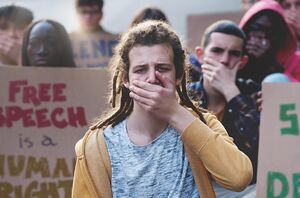Freedom of Speech
Man convicted for publicly burning Quran in protest

A man has been convicted and fined for burning a copy of the Quran outside the Turkish consulate, in a case that has ignited renewed debate over the boundaries of free speech and the possible return of blasphemy-style prosecutions in the UK.
Hamit Coskun, 50, an atheist originally from Turkey, was found guilty at Westminster Magistrates’ Court of a religiously aggravated public order offence.
The incident took place on February 13, when Coskun held a solo protest in front of the Turkish consulate, setting fire to a Quran while shouting anti-Islamic slogans including “Islam is a religion of terrorism” and “Quran is burning.”
District Judge John McGarva described Coskun’s actions as “highly provocative” and said they were motivated “at least in part by a hatred of Muslims.” Coskun was fined £240 and ordered to pay a £96 victim surcharge.
Coskun maintains that his protest was political, aimed at criticising the Turkish government’s policies and the treatment of secular and Kurdish groups, not an attack on Muslim individuals. He argued that the court’s decision sets a dangerous precedent for free speech, particularly for political dissidents and critics of religious ideology.
His defence said, "People must be free to exercise their religious or non-religious beliefs and to manifest those beliefs in whatever non-violent way they choose, and any curtailing by the state of that freedom must be absolutely necessary in a democratic society."
The Crown Prosecution Service initially charged Coskun with harassing the "religious institution of Islam"—a move that drew criticism from legal commentators and free speech groups, who argued this amounted to a revival of abolished blasphemy laws. The charge was later amended to a public order offence.
During the protest, Coskun was physically attacked by two men and required hospital treatment. One of the attackers later pleaded guilty to assault. However, the judge referenced the violent response to Coskun’s protest as part of the evidence that his actions were likely to cause disorder.
The case has prompted concern among MPs and campaigners. Conservative politicians have warned that recent developments may be leading to the reintroduction of de facto blasphemy laws, despite their official repeal in 2008.
Free speech advocates, including the Free Speech Union and the National Secular Society, have voiced support for Coskun and are considering further legal action, possibly escalating the case to the European Court of Human Rights.
The case has underscored growing tensions over freedom of expression in the UK, especially when protest and religious sensitivities collide in the public square.
Share
